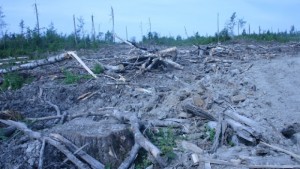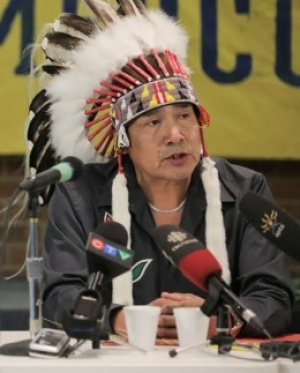 Ministry of Environment rejects First Nations request for second look at forest management plan
Ministry of Environment rejects First Nations request for second look at forest management plan
By Jody Porter, CBC News Posted: Dec 30, 2014 7:24 AM ET Last Updated: Dec 30, 2014 12:37 PM ET
Ontario’s Ministry of Environment and Climate Change has cleared the way for logging to resume near Grassy Narrows First Nation after rejecting the community’s request for an individual environmental assessment.
The Ministry of Natural Resources and Forestry had approved a new forest management plan in 2013 that includes cutting trees on the First Nation’s traditional territory. But the community, already a victim of historic mercury poisoning from a nearby pulp mill, was seeking a more thorough examination of the link between logging and mercury in the environment.
Last week the First Nation in northwestern Ontario received a response saying the ministry was rejecting the request.
Chief Roger Fobister said he is disappointed and disheartened by the decision.
“This is additional mercury now that will be released into our water that will poison our people,” he said. So I think the Ontario government could have looked at this and considered the health of our people and the survival of our people on this land.”
Environmental approvals branch director Agatha Garcia-Wright wrote in a Dec. 22 letter that the mercury concerns raised by Grassy Narrows “were extensively reviewed.”
Garcia-Wright said she is imposing conditions on the forest management plan that will require monitoring to ensure logging complies with the most current requirements.
But Fobister said Ontario can’t be trusted when it comes to environmental protections.
“They have all the jurisdiction over our land and resources and yet they haven’t been a good steward of the land,” he said. “They continue to license industry to extract resources from our land with devastating results.
“Why would we want to trust the government with this? It’s all broken trust.”
The decision from the Ministry of the Environment and Climate Change clears the way for forestry activities to proceed.
Grassy Narrows First Nation has maintained a blockade against logging trucks on its traditional territory for more than a decade. Fobister said he expects it will continue.
“The Ontario government is leading us back to square one in terms of having to defend our land. So people will be standing there to protect the land.”







Leave a comment